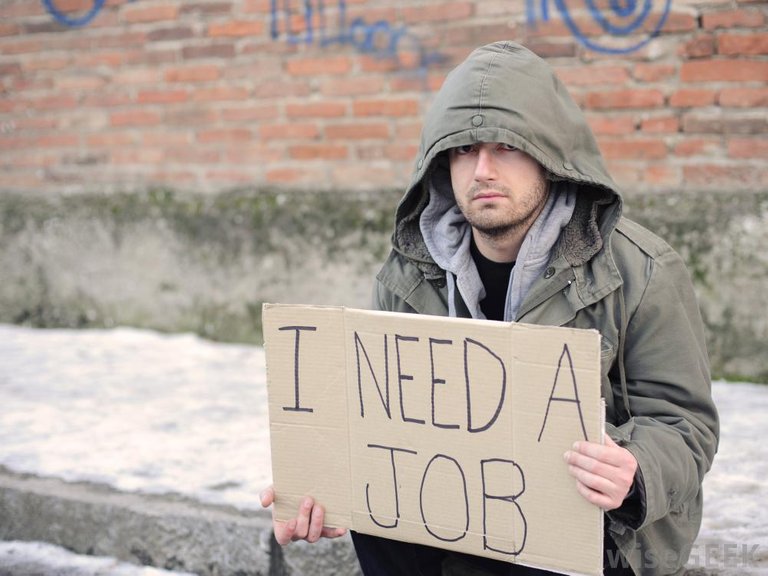Surviving the Gig Economy: Opportunity or Psych-op?

The current economic system is an a seemingly inexorable move towards what is often, breathlessly, called the “gig economy.” It can be sold as an ‘oh so sweet’ type of independence for the little guy. At the same time, the big shots behind the platforms that generate the work tend to make quite a bit of money, while the workers, well…not so much.
As a long-time professional musician, I am probably more familiar with the ‘traditional’ gig economy than most who have been working at more traditional jobs. The realities, which range from harsh to glorious, are very clear to me, which is why I would like to add my two cents to the current trend.
The outlines of the Gig Economy are presented clearly, if in a somewhat misleading manner, in the book “Thriving in the Gig Economy” by Marion McGovern ( © 2017 Career Press). I was the lucky recipient of this text on my birthday (just a few weeks) and initially wondered at the motivation for the gift.
Whatever the motivation, I was now the proud owner of a book that I would have most likely never bought or read. However, both the author and the material are clearly held in high esteem by numerous academic, corporate, and financial elites—demonstrated by their three pages of long, gushing quotations in the front of the book.
What is the gig economy? For one thing, yes, if you are a professional musician, you can make your own hours, and you can travel, and you can have a degree of autonomy and freedom in your life that may seem enviable to the many stuck behind a desk at a highly stressful job. That’s the upside.
In fact, however, many musicians also have a ‘day job’ or ‘day gig,’ meaning a type of steady work, whether teaching private lessons, playing for the church, etc. These are also ‘gigs’ (unless you are at a university) because work can dry up. But, while these steady gigs are going, the students are there, and your contract keeps on being renewed, then all is well.
The downside is that well, you have to keep looking for gigs. You can be on tour one month, and then find yourself without work for the next two months. You can be so busy that you have to choose between events, and so hungry for work that you start putting on your on events on the street. It’s not quite that bad, but it has it pitfalls. If you really hit it, then you are doing great, and that’s great. But, unless you are part of a very small percentage of artists, chances are that you will constantly be looking out for new work. That’s one of the hard parts, knowing that even though things are great now, you need to be thinking one or two years ahead. I personally know many musicians who have toured with major acts, who had great record deals, and currently aren’t really doing much.
The next tour may come up, or it may not. And you may be teaching the latest pop songs to arrogant teenagers for the next twenty years. Or, you may just become the next Bruce Springsteen.
Here’s one fundamental difference between the traditional gig economy, and the “new” gig economy—people generally do music because they love it; there is a payoff, whether creative satisfaction or the pleasure of adulation and audience energy, that many people would do anyway, and in fact many do it for free.
In the case of the modern gig economy, I don’t think many people drive Uber because of the amazing thrills, that they have dreamed their whole lives just to wait in the cold for random strangers to come in their own personal vehicles. I’m not saying that you can’t be rewarded by doing this, by driving around and connecting with others, but I think that I am safe in saying that most people wouldn’t choose this as a career.
With the new gig economy, there is this fundamental distinction. When someone was a cabbie, there are elements such as insurance, dispatchers, other workers, and even unions (depending on the city). With services such as Uber, the driver has to put miles on their car, deal with the wear and tear, be uninsured, and at risk for things that a traditional cabbie wouldn’t have to deal with. It ends up putting others out of work, and while it provides an amazingly convenient service at a great price, the real beneficiaries are those at the top. They make millions (and billions) of dollars, and the workers (and customers) bear all the risks.

The breathless gushing about the “Gig Economy” is really about the total outsourcing of risk, materials, and labor onto the laborer. Yes, there are lawsuits, but it comes down to the middleman taking an even larger cut of the pie.
And, did I mention retirement? Health insurance? Vacation time? Sick leave? That’s one of traditional difficulties with performing arts such as music and acting. But now, this has become (or is becoming the norm) for a whole range of professions. Uber is just the most obvious and well-known, but there is a massive industry growing to create more and more ‘gigs,’ ranging from very high level work to labor.
That’s why I found that the latest title in the modern career field to be a bit lacking. In fact, as a private contractor you suddenly find that you are slapped with a much higher tax burden, having to pay your own social security, and other fun items such as self-employment tax.
The brokers, the new dream merchants, are able to have a mobile, sometimes desperate, and malleable workforce. This is clearly attractive to CEOs. It is clearly attractive to elites, since a perennially insecure workforce generally doesn’t get too uppity. Here’s another important difference. Instead of running your own business, you are taking work from others who serve as giant bulletin board services, instant help-wanted ads so-to-speak, and letting them take the lions share of the money.
There are upsides, but I will develop these later. The upsides are not based on using these services, but creating your own markets, and having a true independence—which was the basis of American and world economies for centuries.
Hey @hansutter - I am excited about the gig economy in many ways. I started working with magic as a hobby about 10 years ago, and started doing paid gigs 6 years ago. Nowadays, I'm doing magic performances about 10 hours a month in addition to my full time job. I did 32 performances last year, making some pretty good side money. I've also done some illustration work in the past, and this is a really good environment for that.
I think creative people always had an uphill battle in the past - connecting to people that honor their work. The modern Internet has changed all of that. The Internet allows people to be connected to the things they are good at. Creative people can get paid, and make a pretty good living at it! It probably sucks if your skill is non-creative.
That's certainly correct. The issue is however, that there is a growing market of middle men that are taking the 'liminal' -the in-between spaces of the economy, and mapping them as new vectors for control. On the other side, people that aren't 'creative' find regular jobs turned into gig jobs....I tried to make the distinction between creative jobs, many of which have always been gig-based, and the general economic model.
OK, your above post got me going on some other ideas.
Imagine an "Uber" sort of service that is run by a blockchain (like Steem). Instead of paying $10 and $2 goes to the driver and $8 goes to Uber, you would have $9.75 going to the driver, $.25 going to the blockchain service fees.
Yes, this new economy will upset the apple cart! :-D
However, am I correct in saying that data in Steem is really non-persistant? (That is, it doesn't stick around very long, right?) For a gig-based service like Uber, you would want certain features to be persistent. For example, if you rate your driver 5 stars, and gave a review that he played all the right music on the car ride, other people should be able to look that up in the future. Can the Steem network hold persistent data like that? I'm not sure.
That image is too small to see. Are you trying to say that the network could hold persistent data?
I dabble in Ruby programming. Perhaps I should check it out.
Actually yes! SteemIt is an example of Persistent data. Your posts will remain retrievable from the Steem Blockchain so long as it's running. And it will likely run for decades at least.
Kind regards : )
That's great news! Thanks!
http://www.steemreports.com
Great, I think that blockchain can prevent the 'gig economy' from being turned into a new paradigm of more insidious corporate control...
https://www.pinterest.com/liberty4rp/propaganda/
https://steemit.com/franklyspeaking/@frankbacon/frankly-speaking-a-punkcast-hustle-in-the-steemit-economy
Hi Hans, thanks for a great post. I think the old mentality of 9 to 5 jobs, Monday to Friday, has been on the way out for a long time. A lot of people in tech work more on a project basis - intense work for a few weeks or months at a time, followed by travel, bumming around, learning new stuff, etc.
Somebody needs to create a blockchain based solution for health insurance and sick leave that is compatible with these new workforce models.
Reposting this article!
I have a lot of Sympathy for what you've outlined.
But my "2 cents" now comes in the form of a $.20 cent Upvote. The Gig economy promoted by the main stream IS a Psych-Out!
The Attention Economy is HERE!
Exactly! Again, an example being musika, a service that offers music teachers students, but you have to do all the leg work, and then teach a free lesson, and then make a very reduced fee if you finally land a student. That is where it can be turned on it's head, but there should be some type of organization, and that those who are admins and that vet the people
wall i think i dont haveanything to say ..